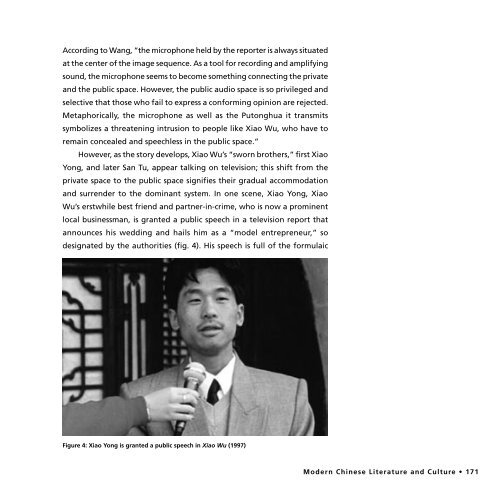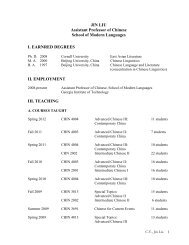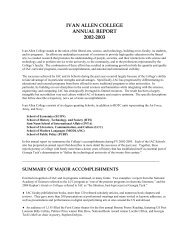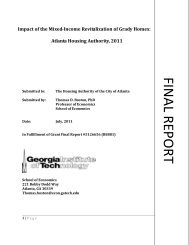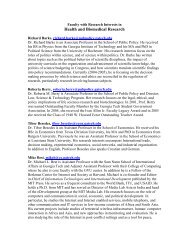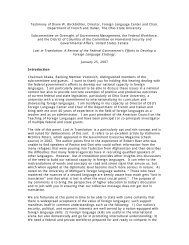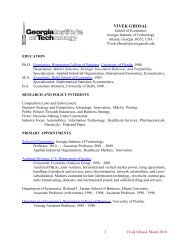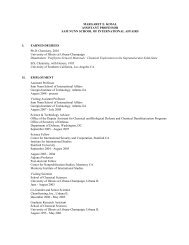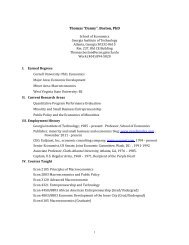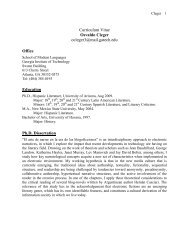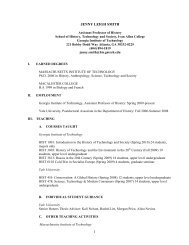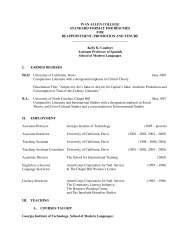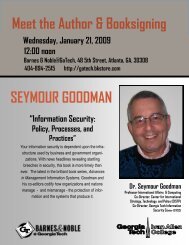Read this paper
Read this paper
Read this paper
You also want an ePaper? Increase the reach of your titles
YUMPU automatically turns print PDFs into web optimized ePapers that Google loves.
According to Wang, “the microphone held by the reporter is always situated<br />
at the center of the image sequence. As a tool for recording and amplifying<br />
sound, the microphone seems to become something connecting the private<br />
and the public space. However, the public audio space is so privileged and<br />
selective that those who fail to express a conforming opinion are rejected.<br />
Metaphorically, the microphone as well as the Putonghua it transmits<br />
symbolizes a threatening intrusion to people like Xiao Wu, who have to<br />
remain concealed and speechless in the public space.”<br />
However, as the story develops, Xiao Wu’s “sworn brothers,” first Xiao<br />
Yong, and later San Tu, appear talking on television; <strong>this</strong> shift from the<br />
private space to the public space signifies their gradual accommodation<br />
and surrender to the dominant system. In one scene, Xiao Yong, Xiao<br />
Wu’s erstwhile best friend and partner-in-crime, who is now a prominent<br />
local businessman, is granted a public speech in a television report that<br />
announces his wedding and hails him as a “model entrepreneur,” so<br />
designated by the authorities (fig. 4). His speech is full of the formulaic<br />
Figure 4: Xiao Yong is granted a public speech in Xiao Wu (1997)<br />
Modern Chinese Literature and Culture • 171<br />
MCLC 18.2.indd 171<br />
12/20/06 2:01:36 PM


